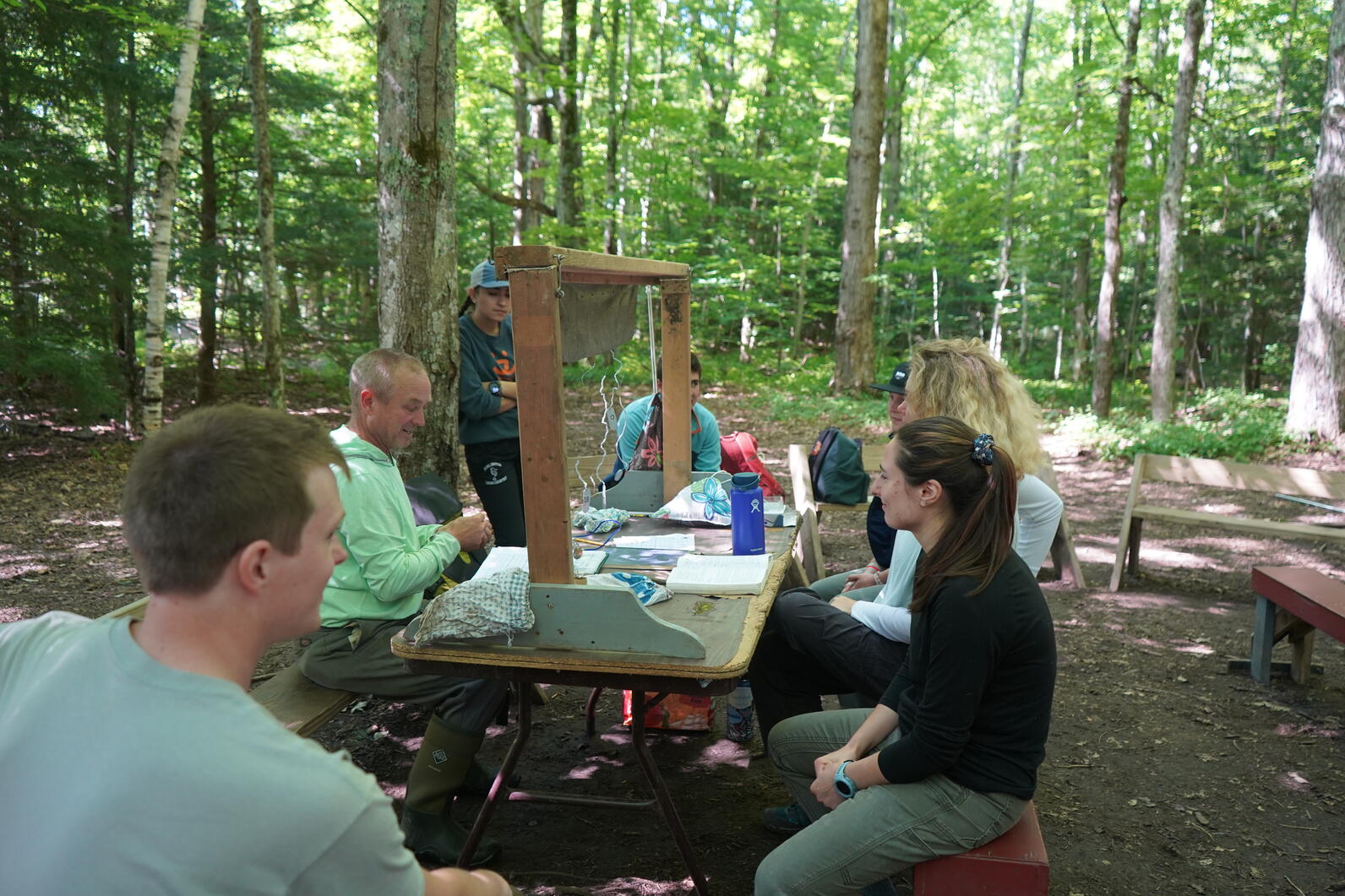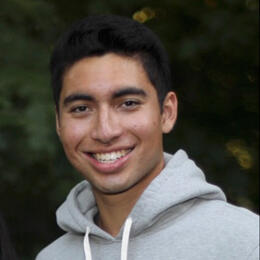Unlike some Vermonters, I didn’t grow up noticing birds. We never had a bird feeder hanging off our porch. I never went on bird walks, and the closest I’d get to a bird was when one would occasionally fly headfirst into my bedroom window. When most people think of the Audubon Society, they probably think of birds. If you asked me now, I’d say the same. When I started as an intern here, however, I was oblivious to just how heavily invested most Audubon members are in the world of birds. I found the quickest way to get rid of this obliviousness was to have the first week of my internship riddled with missed bird puns, references, and slang. I realized that if I wanted to hang with the rest of Audubon, I needed to “up” my birding game and become a birder.
Like many my age, as I learned more about environmental issues I became aware of the effects that global warming has on wildlife and their habitats. My initial thoughts fell to the usual suspects: polar bears, sea turtles, pandas, and coral reefs. But I always wondered why little publicity was given to the more common, less exotic creatures. This disparity captured my interest, and I kept it in mind as I progressed through college and discovered I was way more interested in chemistry than I was in biology. Still, while learning about chemical changes to the Atlantic Ocean or coral reef bleaching in Hawai’i, I wondered what changes were happening to habitats and native species back home in Vermont. When I started as an education intern at Audubon, I stumbled into the perfect scenario to learn about some of these topics that I couldn’t fit into a busy school year. After settling in following my first-week wake-up call, I decided to embark on a journey to learn more about the birds of Audubon.
It is 7 am on a chilly Tuesday morning, and I’m at a bird banding station with Mark LaBarr and the other Audubon summer interns. This is my first experience being within arm's length of a bird, and I watch as the others pull birds out of bags and jot down wingspan and nesting year. I’ll admit I didn’t fully understand what they were doing, but I did pride myself on picking out the differences between a Wood Thrush, Catbird, and Ovenbird. As it warms up we continue our rounds of the Audubon grounds, looking for birds that have found their way into the dozen or so mist nets Mark had set up. Although everything was new to me, and what I was doing amounted to wandering around aimlessly while the others did the actual work, I was enjoying my first real birding experience. Back at the banding station, an American Robin sits in the palm of my hand, its tiny black eyes flickering back and forth. It launches off my fingertips, and I find myself strangely excited to follow it as it flies off beneath the forest’s canopy. My eyes dart from treetop to treetop hoping that a new bird catches my attention and I ask myself a question: “Am I becoming a birder?”

Through outreach programs and Audubon summer camps, I have the opportunity to interact with a wide variety of young Vermonters, each with a different level of enthusiasm towards birds. Most are like me, no birding experience at all, but the occasional camper will come fully equipped to give the group a history lesson on Vermont’s birds of prey. Most of my bird exposure has come from shadowing these programs and camps, discovering bird calls, nests, and identification alongside fellow aspiring birders. Even during the non-bird programs I teach, we often put the lesson plan on hold to search for a bird that catches our attention. Birding can become a passion, and as educators, it is our responsibility to give our campers the tools and freedom they need to explore those areas of interest. So if my lesson on Lake Champlain’s watershed is interrupted by an excited camper who spots a goldfinch, I happily transition from teacher to student and proceed on my journey into becoming a better birder.
My biggest takeaway from the last decade and a half of my schooling is that learning is much easier with a passionate teacher. If I’ve learned anything during my four weeks here at Audubon, it’s that these people really love birds. Every question I ask about birds is met with genuine excitement from others to share all of their birding knowledge. It’s the same reason I first got hooked into conservation and later environmental chemistry; spirited teachers who care about the subject they teach. I can confidently say that every member of the Audubon education team is passionate not only about birds, but also about bringing Vermont’s youth closer to nature. The variety of programs available here allowed me to fit right in with the team and teach about topics I truly enjoy and am familiar with, as well as those I’m just getting to know.
While I would love to report that I’ve become a master birder in my four weeks at Audubon, unfortunately, that’s not the case. Surprisingly to me (and unsurprisingly to anyone else), birding takes lots of practice. Though I might not be the best person to answer your bird questions when you call the office, I’ve found my place here both as an educator and a student. Every staff member I’ve asked has said their time at Audubon has made them far more obsessed with birds than when they started. I guess you could say the same for me; although I’m not ready to take on the title of "bird enthusiast,” my appreciation for birds certainly has grown substantially. As for my future as a bird expert, I’ve already joined the birding club back at the University of Michigan and have recently conducted extensive research into buying my first pair of binoculars.
Not everyone is fortunate enough to be born into a birding family and not everyone can be a clueless intern surrounded by bird fanatics. But I’ve come to learn that you don’t need to own a fancy set of binoculars or have a master’s degree in ornithology to call yourself a birder. A recent article (“It’s Time to Redefine ‘Birding’”) written by Birdability Coordinator Freya McGregor, proposes a new definition of birding as “the act of enjoying wild birds.” This interpretation aims to create more inclusive birding communities by recognizing the countless ways people appreciate birds. We each have the ability to support and grow our local birding community, in our own unique ways. If you are an experienced birder, try getting that one friend who hasn’t grown tired of your bird talk to come with you on a bird outing. If you’re a beginner, take your friend up on their offer to go birding or stop in at one of Audubon Vermont’s birding events, I promise you won’t regret it.








